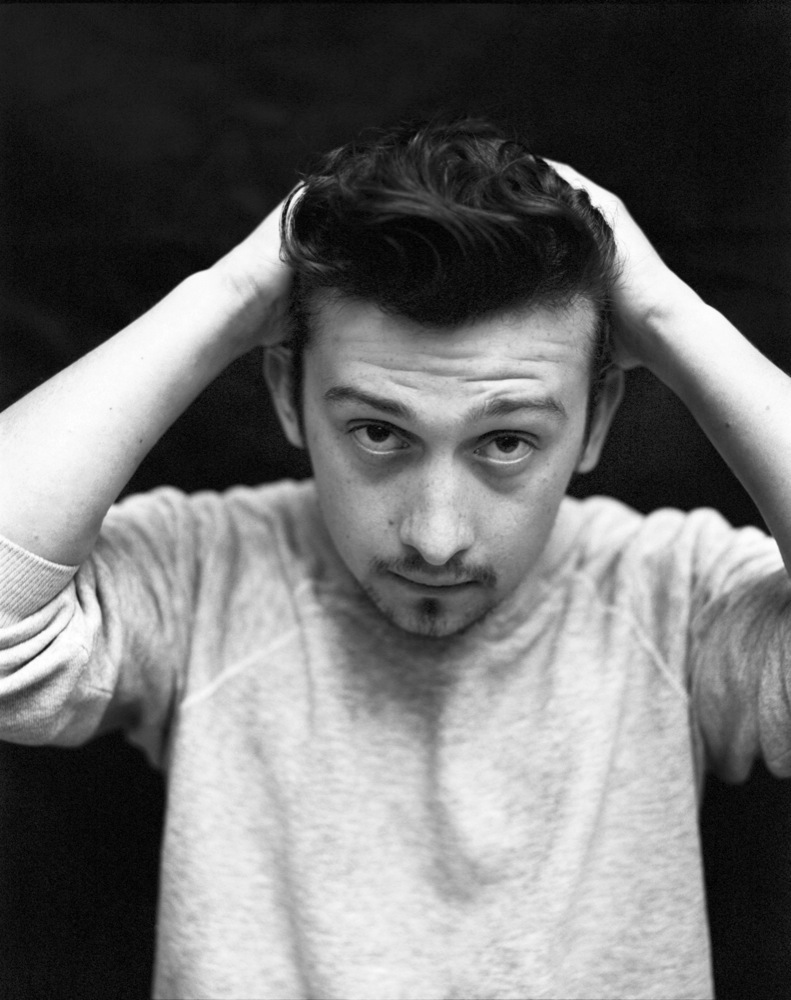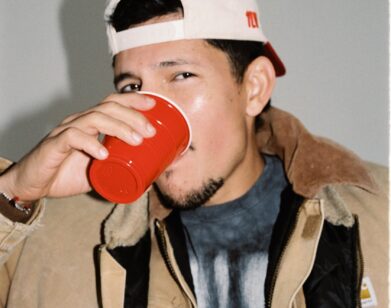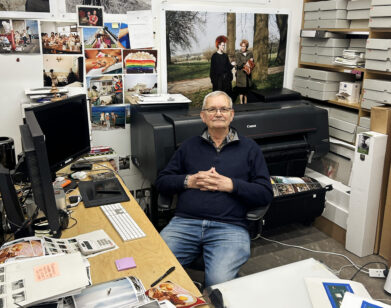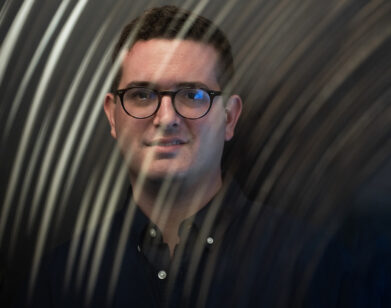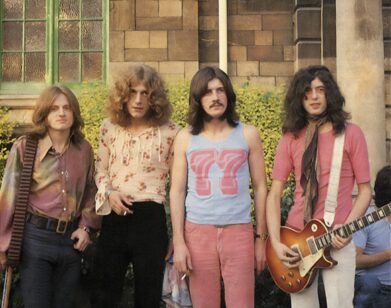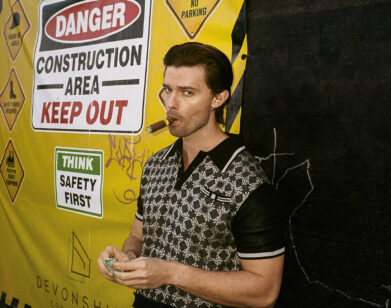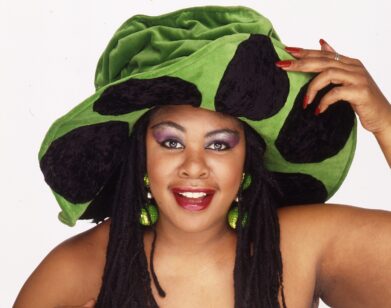Craig Roberts Considers His Future
CRAIG ROBERTS IN LONDON, AUGUST 2015. PHOTOS: BENJAMIN TIETGE. STYLING: LINDSEY HORNYAK. GROOMING: JENNIFER BUCKLEY.
Some actors are reluctant to talk about the role that brought them into the public consciousness, their “breakout.” This is not the case with Welsh actor Craig Roberts. Although the 24-year-old has been acting professionally since he was in single digits, it was Richard Ayoade‘s charming 2010 coming-of-age story Submarine that singled out Roberts as a young actor to watch. Five years later, Roberts still credits Submarine as the job that helped him find his voice as an actor. “I’d acted before, but I wasn’t really aware of what was good or what was me,” he explains over the phone. “I got it into at an early stage and was able to buy more Xbox games via doing that, so it felt wise. I enjoyed it—I enjoyed what I did, but I didn’t really know what I was doing until Submarine,” he continues.
Roberts has had plenty of promising roles since Submarine. He’s crossed the Atlantic with small roles in mainstream comedies like Neighbors and 22 Jump Street. His newest film Kill Your Friends, which stars Nicholas Hoult, just premiered at the Toronto International Film Festival last month. On Friday, the full first season of Greg Jacobs‘ semi biographical Amazon show Red Oaks will be released, with Roberts playing the protagonist David, a 1980s college student who is spending his summer working at the local tennis club.
It is in Just Jim, Roberts’ debut as a writer and director, that the influence of Submarine is most clearly felt. But then again, Just Jim is a film grounded in Roberts’ lived experience and Submarine was a pivotal point in that. Set in an unremarkable Welsh town, Jim (Roberts) is an unremarkable, unpopular teenager. His best friend is his dog, he longs to sit with the cool kids at the back of the bus, sometimes he tells self-aggrandizing lies, and his parents are so far from ever understanding him, they might as well exist in a parallel universe. Things began to change, however, when Jim gets a mysterious new neighbor, a young American man named Dean (Emile Hirsch), who dresses and swaggers like James Dean. At first Dean seems like an imaginary friend—a sort of fairy godfather or coolness coach Jim has invented for himself—but things quickly become more sinister.
Just Jim came out in limited release at the end of September, and Roberts was no more nervous than usual. “I’m happy with the film and I suppose there’s nothing I can do about,” he says. “There’s pressure in the fact that I’m totally to blame for everything. Actors can kind of get away with it if it’s bad, but I’m definitely to blame, which is fine.”
Roberts recently finished writing a second film, which he hopes to work on soon. “Writing is a nice way of saying things you aren’t actually allowed to say to a normal person,” he jokes.
EMMA BROWN: Can you tell me a little bit about how you got involved in Red Oaks? The showrunner Greg Jacobs seems lovely.
CRAIG ROBERTS: Greg is amazing. He did such a good job with Magic Mike the sequel as well. I sent a self-tape over. I tried to make it as interesting as possible. Then I met with Greg in L.A., because it’s loosely based on his teenage years, and he talked me through it. I did a chemistry test with Gage Golightly and got the part and I was as surprised as anyone else.
BROWN: Did Greg give you ’80s films to watch?
ROBERTS: Yeah, there were lots of references for the pilot. Freaks and Geeks was definitely a reference and most of John Hughes’ movies—Sixteen Candles. Caddieshack is definitely in its identity.
BROWN: The sort of ’80s American teen culture that Red Oaks takes place in has been well documented by these iconic films, did you find it easier to slip into the world of the character because of that?
ROBERTS: I wasn’t alive in the ’80s, so I can’t do it completely accurately. I’ve just got to kind of guess. But what I found really interesting about it is it’s nice to do a project in which technology doesn’t play a massive part. Technology is such an easy way to cheat storytelling. It’s almost like using a voiceover. And I think it was really nice that there were no mobile phones or we didn’t have any internet access; it was just people talking and that’s how you communicate.
BROWN: Did the arc of your character change at all from between what you were told when you shot the pilot and shooting the rest of the first season?
ROBERTS: No. There were certain things that were planted in the pilot—like he was studying French New Wave cinema—I’d hoped would go further and it definitely does. He definitely has a passion for filmmaking, which I think is awesome. He likes watching Éric Rohmer movies. That’s a dream come true of a part for me. He’s just on a big journey to find himself and figure out who he wants to be, and I found that very relatable.
BROWN: David’s boss, the tennis pro Nash, is very funny.
ROBERTS: Yeah, Ennis [Esmer]. He’s amazing. He’s almost a mentor for David, but in the most David Brent way—the kind of mentor that you don’t really want but he’s there anyway.
BROWN: In the past you’ve said that you really felt you learnt how to act when you were doing Submarine. Do you still feel that way?
ROBERTS: Absolutely. At this time in my life, I’m not a character actor or somebody that transforms himself, but before that I didn’t really know what my voice was or what I wanted to do and that definitely helped me. Working with Richard Ayoade was one of the best moments of my life; he’s such a talented guy. Just seeing the passion that Richard Ayoade had for doing stuff and how much thought went behind everything—that this was something you could really dedicate your time to and change things with. But I feel like every job I work on I’m learning new things. Working with David Gordon Green [on Red Oaks] put the weird side in me. He’s such a great director and he gets strange performances from people. That’s another thing I love about Red Oaks, the directors they had on were insane. Amy Heckerling did two episodes. Hal Hartley did an episode. It was awesome. Fast Times at Ridgemont High is such a great movie, and so is Clueless. And I just love the sensibility and the glamor of Hal Hartley’s movies. They’re very weird and strange.
BROWN: Was it distracting to have these legends tell you what to do?
ROBERTS: No. It was kind of like, “Whatever you say goes because you’re awesome.” They all had such different ways of approaching it as well. Hal Hartley was very much about the iconography and focused on how it looked and I liked that. With Amy Heckerling, she was passionate about getting certain performances. Everything that I was witnessing I was trying to take in like a sponge and hopefully use in some kind of way.
BROWN: I know with television it can be difficult when you have a different director every episode because everyone has a different style, and maybe they weren’t aware of what was going on before. Was working with all of these different people quite seamless?
ROBERTS: It was. I always wondered beforehand how that works, with different directors, whether there’s a bible or some kind of code to stick to: “We don’t ever do this or do that.” But it all kind of clicked. One thing with Amy Heckerling was that she doesn’t like smoking or promoting smoking, so nobody smoked in her episodes, which I thought was really cool considering it was the ’80s. From what I’ve seen, it doesn’t stand out. You can definitely see the directors voice in there—David’s episodes are probably going to be more eccentric than most.
BROWN: You mentioned David got weirder performances out of the actors. What do you mean by that?
ROBERTS: Probably not out of me—my guy’s kind of just witnessing everything—but what David does is he gets you to do weird stuff, so the stuff in between you doing weird stuff is probably some of the stuff you’ll use, because you’re thinking and you’re acting on natural instincts. And that’s what I like. In that moment where you’re thinking “Do I do that?”—he’ll probably use that.
BROWN: How did you change your process after Submarine?
ROBERTS: I took it more seriously. I started watching more films and realized that that’s the best way to improve—watching as much as possible and taking it in. I studied it by going home and watching movies.
BROWN: Did you ever think about going to drama school?
ROBERTS: I didn’t, because it was never an option. I don’t know if it’s for me, it’s like going into school and becoming a plastic bag. I don’t know what I would take from that, to be honest. I would just feel uncomfortable.
BROWN: Do you want to be a character actor who so completely transforms himself with every role?
ROBERTS: I don’t know. With Daniel Day Lewis, it’s almost like you remove him from question, because he’s so good, it’s beyond acting. It’s crazy how good that guy is, but it’s because he spends so much time on stuff; he’s very dedicated. I think he’s amazing. Joaquin Phoenix reminds me of early Robert De Niro—when Taxi Driver and King of Comedy came out. They’re all kind of similar performances, but at the same time he was changing slight mannerisms; it constantly felt fresh. And with Joaquin Phoenix, he seems to have mannerisms that he’s still introducing to the world. I just don’t know where they are coming from. I think he needs to carry on working with Paul Thomas Anderson.
BROWN: Is your favorite Joaquin Phoenix performance The Master?
ROBERTS: Inherent Vice probably just because it was so cool. It was like a cartoon. I’d never seen anyone perform like that. He was just doing weird stuff. But The Master…it’s ironic because it’s called The Master and it’s a masterpiece of a performance.
BROWN: In Kill Your Friends you play a junior record executive.
ROBERTS: Yes. I play the assistant to Nicholas Hoult. It’s definitely a heightened world. This guy goes on a rampage and does what he wants and it’s fascinating. Nicholas Hoult is so good in the movie; he’s so charismatic and so watchable. The movie’s crazy in a good way. It’s good to see something different for a British film.
BROWN: As a young actor, how do you balance taking roles that you think will hold up in the future and working enough to be able to support yourself?
ROBERTS: As an actor, you don’t really have much say. Obviously you have to turn up and do a good job, but you don’t really have much say on the whole thing. I’ve read so many scripts and sometimes they don’t turn out to be good movies for certain reasons, so it’s hard to tell what’s going to be good and what’s going to be bad. I just go by my gut and play Xbox. I get my nan to pick a lot of the stuff, cause my nan is so removed from anything. I basically run her through the synopsis and see if that sounds interesting, and if she says “no,” then probably not. Who am I to pick what to do? I don’t really know.
BROWN: What did she think of the premise of Red Oaks?
ROBERTS: She loved it. Absolutely loved it. [laughs]
THE FIRST SEASON OF RED OAKS WILL BE AVAILABLE VIA AMAZON PRIME INSTANT VIDEO THIS FRIDAY, OCTOBER 9.

